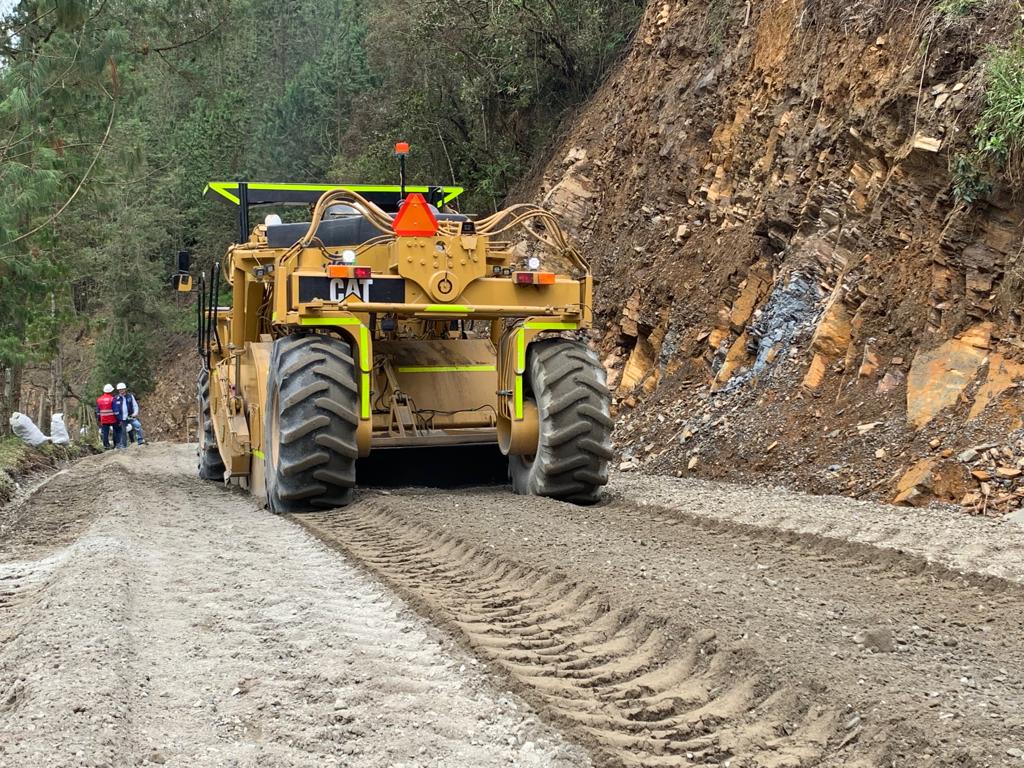Premium Bitumen and Asphalt Products and Suppliers in Ethiopia
Ethiopian premium bitumen and asphalt products might not always grab the spotlight next to their global counterparts, yet they carve a niche with unmatched durability and adaptability. This unique character sets them apart in the expansive world of construction materials, offering a distinct experience that distinguishes Ethiopian bitumen and asphalt as categories in their own right. Key types of these materials include Standard Penetration Bitumen, Polymer Modified Bitumen (PMB), and Asphalt Concrete, each known for their distinct properties.
Single Grade Bitumen also stands out, offering a robust yet flexible option for construction projects. Delving a bit deeper, each type of bitumen and asphalt presents its own set of advantages, production techniques, environmental adaptability, and recommendations for application. The following sections will explore these aspects in detail, providing a richer understanding of what makes Ethiopian premium bitumen and asphalt products a cornerstone in the construction industry, both locally and internationally.
What are premium bitumen and asphalt products?
Premium bitumen and asphalt products are essential materials in the construction industry, especially for road building and maintenance. Bitumen, a sticky, black, and highly viscous liquid, acts as the binder in asphalt concrete, a crucial component for road surfaces. Asphalt products are created by mixing bitumen with aggregates like sand and gravel, resulting in the smooth, durable surfaces that vehicles travel on.
High-grade bitumen and specialized asphalt mixtures that exhibit exceptional durability and resistance to environmental factors fall into the category of premium. These products adhere to international standards, ensuring they meet the rigorous demands of construction projects in terms of quality, performance, and sustainability. Their formulation is specifically designed to endure the diverse environmental conditions of Ethiopia, from high temperatures to heavy rainy seasons, making them indispensable for the country's infrastructure development and economic advancement.
Why are premium bitumen and asphalt important in Ethiopia?
In Ethiopia, premium bitumen and asphalt hold a key position in the realm of road construction and maintenance, significantly contributing to the nation's economic growth and connectivity. Their unparalleled importance is rooted in their capacity to furnish durable and resilient surfaces adept at withstanding Ethiopia's challenging environmental conditions, including the extremes of high temperatures and the onslaught of heavy rains. The strategic application of high-quality, premium bitumen and asphalt not only minimizes the susceptibility of roads to damage but also curtails the frequency of repairs.
This, in turn, translates into lower maintenance expenses and an extended lifespan for road infrastructure. The durability afforded by these premium materials is indispensable for ensuring the smooth operation of transportation and trade, pivotal elements in Ethiopia's blueprint for economic development. Moreover, roads that are maintained in prime condition enhance the connectivity to remote regions, fostering social cohesion and broadening access to vital services.
In essence, premium bitumen and asphalt products stand as the backbone of Ethiopia's drive towards sustainable growth and development, underpinning the construction of a robust and reliable road network across the country.
Critical for road construction and maintenance
Premium bitumen and asphalt are indispensable in the construction and upkeep of Ethiopia's roadways. These materials ensure that roads are capable of withstanding the nation's varied climatic conditions and the wear and tear from constant traffic. Their durability is key in minimizing the need for frequent repairs, ultimately reducing maintenance costs.
Supports economic growth and connectivity
The use of premium bitumen and asphalt plays a pivotal role in supporting Ethiopia's economic development. By providing durable and reliable roads, these materials enable more efficient transportation, which is vital for trade and access to markets. Additionally, an improved road network enhances connectivity between communities, facilitating better access to education, healthcare, and job opportunities, thereby contributing to the overall socio-economic development of the country.
Who are the leading suppliers in Ethiopia?
In the realm of premium bitumen and asphalt in Ethiopia, a few key players lead the market, each distinguished by their commitment to quality and innovation. Pro-Road Companies shine allover African countries with their high-grade bitumen, meeting the stringent requirements of road construction and maintenance projects. Flintstone Engineering is noted for its specialized expertise in asphalt mixtures, offering customized solutions that address the unique needs of each project.
Ethio-Asphalt PLC stands out for its forward-thinking approach, delivering innovative asphalt solutions that incorporate the latest technological advancements to improve durability and performance. Together, these suppliers play a crucial role in fueling Ethiopia's infrastructure growth, ensuring the construction sector has access to the best materials available.
Pro-Road Companies – Known for high-grade bitumen
Pro-Road Companies is celebrated for its provision of their top-quality bitumen products worldwide, a cornerstone for constructing and maintaining durable roads. Their dedication to quality ensures that Ethiopia's infrastructure projects are built to last, capable of enduring both time and environmental challenges.
Flintstone Engineering – Specializes in asphalt mixtures
Flintstone Engineering distinguishes itself in the Ethiopian construction sector with its expertise in asphalt mixtures. By focusing on tailored solutions, they meet the unique requirements of each construction project, ensuring roads are not only durable but also suitably adapted to their specific contexts.
Ethio-Asphalt PLC – Offers innovative asphalt solutions
At the cutting edge of the industry, Ethio-Asphalt PLC leads with innovative asphalt solutions, leveraging the latest in technology to push the boundaries of what's possible in asphalt production. Their forward-thinking approach is setting new benchmarks for quality and durability in Ethiopia's rapidly evolving infrastructure landscape.
Factors when selecting a supplier
Choosing the right supplier for premium bitumen and asphalt in Ethiopia hinges on several key factors, crucial for the successful execution of construction projects. The quality of products stands at the forefront, requiring suppliers to align with or surpass international standards to ensure the materials' longevity and efficacy. Supply capacity is equally critical, as the ability to handle large-scale orders is essential for meeting project deadlines without compromising quality.
Pricing and payment terms are significant considerations, where competitive pricing and flexible payment arrangements can significantly benefit project budgets. Lastly, the capability for delivery and logistics is indispensable, guaranteeing that materials are transported reliably and promptly to construction sites across the country. Together, these factors form the cornerstone of decision-making when selecting a supplier, ensuring that construction projects are supported by the best possible materials and services.
Quality of products – Compliance with international standards
The quality of products is a non-negotiable factor, demanding adherence to international standards. This commitment guarantees that the bitumen and asphalt contribute to the construction of resilient and long-lasting road infrastructures in Ethiopia, capable of enduring the country's varied climates.
Supply capacity – Ability to meet large orders
Supply capacity underscores the necessity for suppliers to manage large orders effectively. This capability is crucial to prevent project delays, ensuring a steady progression towards completion and adherence to project timelines.
Pricing and payment terms – Competitive and flexible
Pricing and payment terms must strike a balance between being competitive and flexible. Affordable pricing structures facilitate budget management, while flexible payment options support the diverse financial strategies of construction projects.
Delivery and logistics – Reliable in-country transportation
Delivery and logistics focus on the importance of reliable in-country transportation. Timely and dependable delivery services are vital for ensuring that materials are available when needed, keeping construction projects on track.
Impact of Ethiopian environmental conditions
The Ethiopian environmental conditions play a pivotal role in dictating the selection and efficacy of premium bitumen and asphalt products. The country's characteristic high temperatures necessitate materials that can resist softening and retain their integrity, ensuring roadways remain stable and serviceable even under the scorching sun. On the flip side, Ethiopia's rainy seasons introduce challenges of water damage and erosion, highlighting the importance of utilizing products with superior water-resistant properties.
These climatic considerations underscore the need for bitumen and asphalt that are not only robust but also versatile, capable of adapting to Ethiopia's distinctive environmental landscape to guarantee the sustained durability and functionality of its road infrastructure.
High temperatures – Need for temperature-resistant products
In response to Ethiopia's high temperatures, there is a critical need for temperature-resistant products. These specialized materials are designed to withstand the extreme heat, preventing roads from softening or warping, thus ensuring they remain functional and safe under the sun's relentless intensity.
Rainy seasons – Products with water-resistant properties
The rainy seasons in Ethiopia call for materials equipped with water-resistant properties. Such products are essential in combating the challenges of water infiltration and erosion, safeguarding the structural integrity and longevity of the nation's roadways against the relentless downpours.
Latest trends in bitumen and asphalt technology
The realm of bitumen and asphalt technology is experiencing significant innovations, notably with the introduction of polymer-modified bitumen (PMB). This cutting-edge development significantly boosts the resilience and adaptability of road surfaces, ensuring they can better withstand the rigors of traffic and climatic variations. In parallel, the industry is witnessing a surge in the adoption of eco-friendly asphalt solutions.
These sustainable practices prioritize the use of recycled materials and aim to minimize carbon footprints, reflecting a growing commitment to environmental stewardship. Together, these advancements are redefining standards in infrastructure projects, marrying the dual objectives of enhanced performance with sustainability.
Polymer-modified bitumen – Enhanced durability
Polymer-modified bitumen is revolutionizing the industry with its enhanced durability. By integrating polymers into bitumen, this technology significantly improves the asphalt's resistance to various stressors, ensuring roadways are more durable and less prone to damage over time.
Eco-friendly asphalt solutions – Reduced environmental impact
The movement towards eco-friendly asphalt solutions is pivotal in minimizing the environmental impact of road construction and maintenance. Emphasizing the use of recycled materials and aiming for lower carbon emissions, these innovative practices are paving the way for more sustainable infrastructure development.
Ensuring quality of bitumen and asphalt
Ensuring the quality of bitumen and asphalt is paramount, necessitating a stringent approach that begins with certifications. Adherence to ISO and other relevant standards is crucial, setting the bar for quality and safety in materials used for road construction. Equally important is laboratory testing, a fundamental practice that verifies the materials' consistency and performance.
Through rigorous and consistent testing protocols, it's possible to ensure that bitumen and asphalt not only meet but exceed the demands of construction projects. This comprehensive approach to quality assurance plays a critical role in maintaining the integrity and durability of infrastructure, ultimately contributing to safer and more reliable roads.
Certifications – ISO and other relevant standards
Certifications, particularly those aligning with ISO and other relevant standards, play a pivotal role in the quality assurance process for bitumen and asphalt. These certifications act as a seal of approval, indicating that the materials have undergone rigorous evaluation and meet the highest standards of quality and safety necessary for effective road construction.
Laboratory testing – Consistency and performance checks
Laboratory testing is indispensable for verifying the consistency and performance of bitumen and asphalt materials. Through a series of controlled tests, these materials are scrutinized for their ability to perform under various conditions, ensuring they possess the required properties for longevity and durability in infrastructure projects.
Challenges in supply in Ethiopia
The supply of premium bitumen and asphalt in Ethiopia is fraught with challenges that significantly affect the construction sector. Import restrictions stand out as a primary obstacle, severely limiting the availability of high-quality materials from abroad and often leading to shortages. Compounding this issue are transportation difficulties, exacerbated by Ethiopia's challenging terrain and less developed infrastructure, which make the delivery of materials to construction sites a complex task.
These challenges collectively impede the progress of road construction and maintenance projects, highlighting the urgent need for innovative solutions to enhance the supply chain and ensure a steady flow of crucial construction materials.
Import restrictions – Limited foreign suppliers
Import restrictions create a significant bottleneck in the supply of premium bitumen and asphalt in Ethiopia, constraining the entry of foreign suppliers into the market. This limitation often leads to a scarcity of high-quality materials that are crucial for the success of road construction and maintenance projects.
Transportation issues – Difficult terrain and infrastructure
Transportation issues, stemming from Ethiopia's rugged terrain and less developed infrastructure, pose substantial challenges in transporting construction materials to project sites. These logistical obstacles can lead to delays and increased costs, impacting the efficiency and timeline of construction projects.
Future developments in the Ethiopian market
The Ethiopian market for premium bitumen and asphalt is on the cusp of significant changes. A move towards increased local production is expected to mitigate the current issues stemming from import restrictions, thereby reducing the reliance on foreign suppliers. This shift not only aims to ensure a steady supply of high-quality materials but also to bolster economic growth by supporting local industries.
Concurrently, the adoption of green technologies in the production and application of bitumen and asphalt is anticipated to accelerate. These sustainable practices are poised to lessen the environmental footprint of road construction, aligning with global sustainability efforts and responding to the increasing call for eco-friendly construction methods. These forward-looking developments herald a future where Ethiopia's construction sector is more self-sufficient, environmentally responsible, and better prepared to address the infrastructural challenges ahead.
Increased local production – Reducing import dependency
Increased local production is poised to revolutionize Ethiopia's bitumen and asphalt market by reducing import dependency. This strategic shift aims to secure a consistent supply of premium materials, enhancing the autonomy of Ethiopia's construction sector and supporting the growth of local economies.
Adoption of green technologies – Sustainability in construction
The adoption of green technologies represents a significant move towards sustainability in construction. Embracing eco-friendly innovations in the production and use of bitumen and asphalt reflects Ethiopia's commitment to environmental stewardship, paving the way for a construction industry that is both sustainable and in harmony with global ecological objectives.

Contact us to get to work
We have a talented team, the best materials, tools, and equipment at your disposal.

